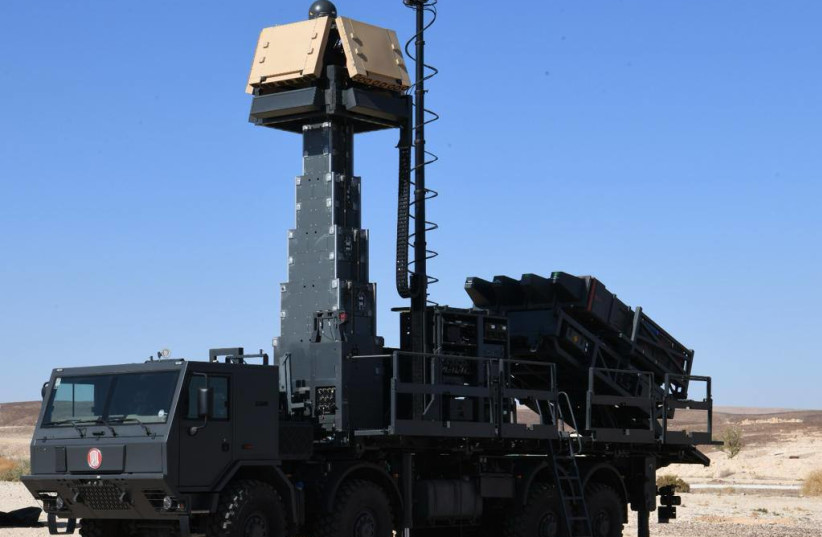Israel tests SPYDER air defense system amid rising drone threat
Rafael Advanced Defense Systems and the Defense Ministry successfully completed an experiment in the Rafael-made SPYDER All-in-One air-defense system on Wednesday, the Defense Ministry said.
In an experiment carried out in Israel last week, scenarios simulating actual and potential future threats were enacted. The experiment included an unmanned aerial vehicle (UAV) interception under operationally challenging circumstances, which was hit directly and accurately.
The defense system is already operational in many militaries around the world and provides air defense solutions for various threats, such as drones, planes, helicopters, and even tactical ballistic missiles (TBM).
According to Rafael, the system includes two types of missiles: the PYTHON-5 and the I-DERBY. The All-in-One SPYDER is the new generation in the defense system, essentially a fusion of the main functions of diverse systems into one 8×8 vehicle.

New upgrades reflect potential threats
The new UAV interception capabilities can be added to another recent addition in SPYDER – an upgrade tailored to defend against ballistic missile attacks.
Executive Vice President and General Manager of the Air & Missile Defense Systems Division Brig. Gen. (Res.) Pinhas Yungman said that the extension of the defense system to the ballistic missile defense is of prime importance.
According to the company, “The system provides effective protection of valuable assets and first-class defense for forces located in the combat area. SPYDER’s open architecture allows external components to be easily integrated and flexibly combined, affording different configurations with various ranges and capabilities based on customer needs and priorities.
“Its autonomous capabilities can detect threats while on the move and enable a 360° launch within seconds of the target being declared hostile, in all-weather, multi-launch, and net-centric capabilities. All the SPYDER systems have multiple target engagement capabilities for handling saturation attacks.”
Yonah Jeremy Bob contributed to this article.





Comments are closed.